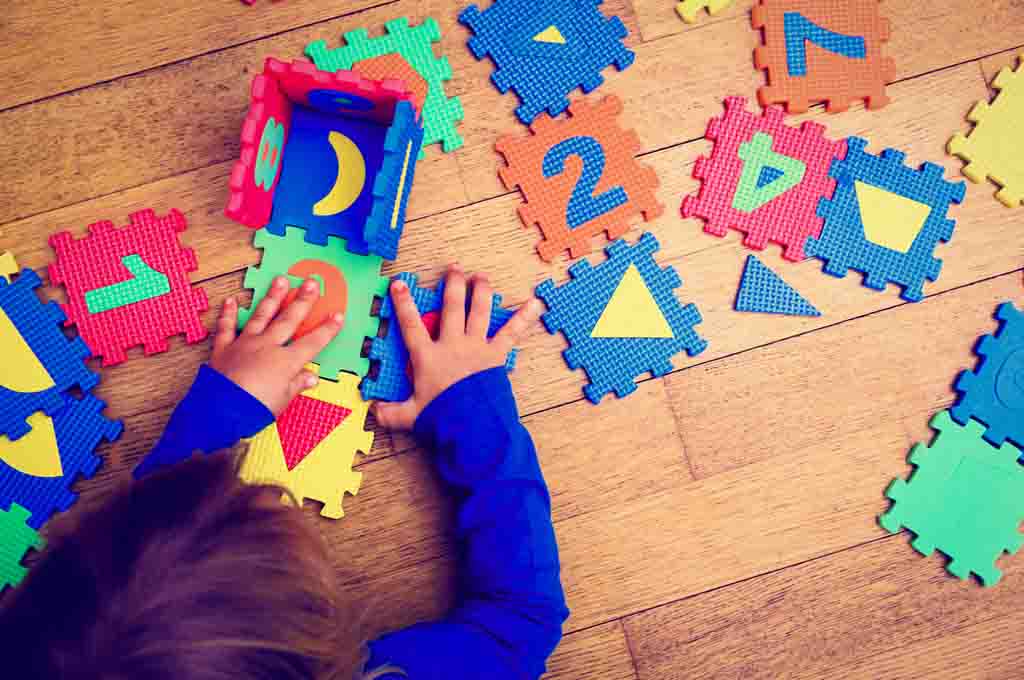When you send your child to a preschool, you are preparing them for their elementary education. Maths skills learned in preschool lay the foundation of understanding concepts and applications easily in elementary school and beyond. For this reason, early childhood educators should focus on activities and lessons to develop these basic skills.
Basic Math Skills
Early childhood education should be more like play for a child. When you introduce number concepts without the child realising it, math learning in elementary school becomes easy. Educationists feel that a three-year-old child is mentally ready to adapt to these concepts.
There is an advantage in building this foundation of concepts and terminology during early childhood education. Children are well prepared when they need to apply the information in the classroom. Their familiarity with these math basics helps elementary teachers to concentrate on the application of new concepts and ideas.
Learning Numbers via Pictures or Representation
A child’s mind absorbs visual inputs easily and can quickly build a relationship between numbers and items placed before them. Most children develop a clear understanding of this relationship through pictures or representation, and this is an excellent way of introducing mathematics to a child.
The method of representing numbers with toys, pictures, or even the child’s family members or friends becomes a fun and easy way for them to learn. Early childhood educators should focus on this approach, making children count pictures of animals, fruits, etc. The child understands that the number represents the item. In this way, math becomes a part of their life and reduces the possibility of any confusion in later classroom learning.
Developing Number Sense
Number sense is what the numbers mean to the child and indicates their fluidity and flexibility with numbers. This vital basic maths skill encourages children to think dynamically and promotes their confidence with numbers. Preschool teachers must ask children to count numbers forwards and backwards so that they understand the relationship between the numbers in the future as well.
Number sense must be taught before a child reaches kindergarten. The teachers here will review children’s skills in counting forward and backward. If preschool educators lay a foundation in number sense, it can lead to a stronger understanding of this vital skill before the child starts with their elementary education. Early development of number sense is a significant maths skill that plays a vital role in learning mathematical concepts and advanced calculations in later years.
Addition and Subtraction
These are the basic skills that children use while interacting with each other. The give and take of cookies, biscuits, candies while they eat together is a simple way of teaching them addition and subtraction. That makes the introduction of concepts easy and natural.
Learning in this way also lays a more solid foundation for maths skills advancement in future education. It obviates the need to prepare any special maths lessons that may be difficult for them to understand at their age and level of knowledge.
Preschool Learnings Become the Building Blocks for Academics
Young children learn many skills at an amazing speed, and that includes basic maths. They learn these concepts through normal activities in a playful way. Teachers can encourage skills such as number sense, addition & subtraction, and similar simple maths concepts to ease the children’s transition into elementary education. These learnings become the building blocks for their later academic career. Check out our maths preschool activity here.
We at Clovel Childcare and Early Learning Centres, provide a very nurturing environment for children to learn and grow. For any information about our services, give us a call at 02 9199 0294 or fill in this contact us form
Thanks for reading,
Clovel Childcare
1300 863 986












